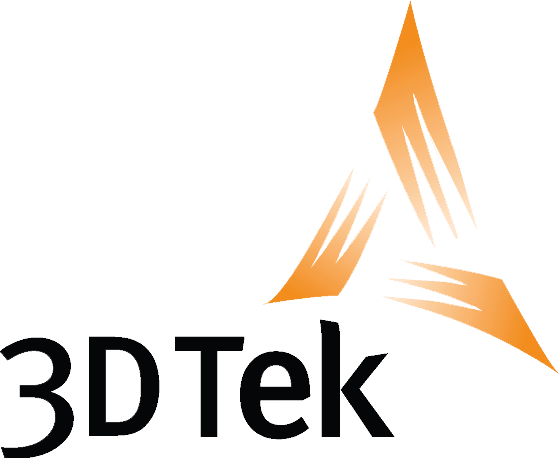The demand for intuitive and secure applications in the healthcare sector is at an all-time high, driving providers to seek digital solutions that redefine patient care. From virtual consultations to remote monitoring, the evolution of healthcare apps has become a cornerstone of modern medical practice. However, the pivotal first step in this transformative journey lies in selecting the most suitable programming language.
With a myriad of options available, including Python, Java, C, Kotlin, and more, the choice of programming language holds the key to unlocking the full potential of healthcare app development. This article aims to elucidate the top 10 programming languages tailored specifically for healthcare applications, empowering readers to make well-informed decisions.
Whether you are a healthcare professional striving to enhance patient outcomes or a developer keen on driving innovation in healthcare technology, understanding the intricacies of programming languages is paramount. Join us on an exploration into the technological backbone of contemporary healthcare solutions, as we navigate the diverse landscape of programming languages and unveil the transformative possibilities for your next app development endeavor.
Types of Medical Coding Languages Used in Healthcare Software Development
In the healthcare software development industry, it’s important to understand the different types of programming languages commonly used in the field. Here are the main types of coding technologies for medical care:
Compiled Languages
Compiled languages like Java, C, C++, and Swift are favored in healthcare software development for their performance, security, portability, and optimization capabilities. They result in faster code execution, enhanced security, platform compatibility, resource efficiency, and are well-suited for building robust and scalable healthcare applications.
Interpreted Languages
Interpreted languages like Python, JavaScript, Ruby, and PHP are popular in healthcare software development due to their flexibility, platform independence, ease of learning, and interactive development environments. They allow for rapid prototyping, dynamic code changes, and easy debugging. However, they may have slower performance compared to compiled languages.
General-purpose Languages
General-purpose languages in healthcare software development are versatile, widely applicable programming languages suitable for various tasks like web development, mobile apps, and data analysis. Examples include Python, Java, JavaScript, and C#. They offer versatility, community support, cross-platform compatibility, scalability, and performance, making them ideal for developing diverse healthcare applications.
Domain-specific Languages
Domain-specific languages (DSLs) in healthcare software development are specialized programming languages designed for specific healthcare tasks, such as HL7 FHIR for data exchange, SQL for database querying, and CQL for clinical decision support rules. They offer targeted functionality, simplified syntax, optimized performance, and increased productivity, enhancing healthcare software development in specific domains.
Functional Languages
Functional languages in healthcare software development prioritize functions as the core elements of code, promoting immutability, higher-order functions, and concurrency. Examples include Haskell, Erlang, and Scala, offering benefits like reliability, concurrency support, and scalability for healthcare applications.
Which coding language is best for healthcare software development?
In the realm of healthcare software development, choosing the right coding language is paramount to creating robust and efficient solutions that meet industry standards. In this article, we delve into the top 10 medical coding languages specifically tailored for healthcare applications. Each language offers unique advantages and functionalities, ensuring that healthcare software developers can make informed decisions to meet the complex demands of the healthcare sector.
Programming Language #1: Python
Python has emerged as one of the top programming languages in healthcare software development due to its versatility, simplicity, and extensive ecosystem of libraries and frameworks. Its readability and ease of learning make it accessible to developers with varying levels of experience, while its robust libraries for data analysis, machine learning, and web development make it ideal for creating complex healthcare applications. Additionally, Python's interoperability with other languages and platforms enhances its appeal, allowing developers to integrate it seamlessly into existing healthcare systems and workflows.
Programming Language #2: PHP
PHP is another favorite amongst Healthcare Software Developers for several reasons. Firstly, its server-side scripting capabilities make it well-suited for creating dynamic and interactive web-based healthcare applications, such as patient portals and appointment scheduling systems. Additionally, PHP offers easy integration with popular databases like MySQL, making it efficient for handling large volumes of healthcare data securely. Its open-source nature and extensive community support provide developers with a wealth of resources, libraries, and frameworks to streamline development processes and ensure scalability and maintainability in healthcare software projects.
Programming Language #3: Java
Java is widely regarded as one of the top programming languages in healthcare software development due to its reliability, security, platform independence, and scalability. It is well-suited for building complex healthcare applications that require high performance, interoperability with existing systems, and the ability to handle large volumes of data securely. Additionally, Java's extensive ecosystem of libraries, frameworks, and developer tools makes it a preferred choice for healthcare software development teams aiming for robust and efficient solutions.
manipulating databases. Healthcare applications often deal with vast amounts of sensitive patient data, and SQL provides a standardized and efficient way to store, retrieve, update, and analyze this information securely. Its ability to handle complex queries, transactions, and relationships between different data entities makes it indispensable for developing electronic health record (EHR) systems, patient management systems, billing systems, and healthcare analytics platforms. Moreover, SQL's strong data integrity features, scalability, and compatibility with various database management systems (such as MySQL, PostgreSQL, and Oracle) make it a fundamental tool for healthcare developers aiming to build reliable and scalable software solutions.
Programming Language #4: HTML
HTML (HyperText Markup Language) is considered one of the top languages in healthcare software development primarily because of its role in creating user interfaces for web-based healthcare applications. While not a programming language in the traditional sense, HTML is crucial for structuring and presenting content on the web, including medical records, patient portals, appointment scheduling systems, and telemedicine platforms. Its simplicity, compatibility with browsers, and widespread adoption make it an essential tool for healthcare developers to design interactive and accessible interfaces that facilitate patient care and streamline healthcare workflows.
Programming Language #4: R
R is highly desirable in healthcare software development due to its specialized focus on statistical computing and data analysis. As the "lingua franca of statistics," R offers a rich set of statistical and graphical techniques that are essential for analyzing complex healthcare data, conducting clinical trials, and developing predictive models. Its extensive libraries, such as Bioconductor for genomics analysis, make it invaluable for healthcare professionals working with large-scale medical data sets. Moreover, R's open-source nature, active community, and interoperability with other languages like Python enhance its appeal for building advanced healthcare analytics and decision support systems.
Programming Language #5: Kotlin
Kotlin is increasingly utilized in healthcare software development due to its modern features, concise syntax, and versatility across different platforms. Its seamless interoperability with Java makes it a preferred choice for Android-based healthcare applications, offering developers the ability to leverage existing Java libraries and tools. Kotlin's null safety, expressiveness, and support for coroutines contribute to more robust and error-resistant code, crucial for healthcare apps where precision and reliability are paramount. Additionally, Kotlin's first-class support for Android development, modern language features, and strong community backing make it well-suited for building scalable and efficient healthcare solutions.
Programming Language #7: SQL
SQL (Structured Query Language) is widely used in healthcare software development for its robust capabilities in managing and manipulating databases. Healthcare applications often deal with vast amounts of sensitive patient data, and SQL provides a standardized and efficient way to store, retrieve, update, and analyze this information securely. Its ability to handle complex queries, transactions, and relationships between different data entities makes it indispensable for developing electronic health record (EHR) systems, patient management systems, billing systems, and healthcare analytics platforms. Moreover, SQL's strong data integrity features, scalability, and compatibility with various database management systems (such as MySQL, PostgreSQL, and Oracle) make it a fundamental tool for healthcare developers aiming to build reliable and scalable software solutions.
Programming Language #8: Swift
Swift is another favorite used in healthcare app development due to its efficiency, performance, and robust features specifically designed for iOS and macOS platforms. Developed by Apple, Swift offers a modern and intuitive syntax that simplifies coding and enhances developer productivity. Its powerful features, such as Automatic Reference Counting (ARC) for memory management, make it well-suited for creating responsive and stable healthcare applications. Additionally, Swift's seamless interoperability with Objective-C allows developers to leverage existing codebases and libraries, making it easier to integrate with legacy systems and third-party APIs commonly used in healthcare environments. Overall, Swift's speed, reliability, and support for Apple's ecosystem make it a preferred choice for building innovative and user-friendly healthcare apps on iOS devices.
Programming Language #9: C
C is commonly used in healthcare app development due to its high performance, low-level capabilities, and versatility across different platforms. Being a procedural and structured language, C allows developers to optimize code for efficiency and speed, crucial for healthcare applications that require real-time processing and complex computations. Its direct access to hardware resources and efficient memory management make it suitable for building embedded systems, medical devices, and data-intensive applications in healthcare. Additionally, C's extensive standard library and compatibility with various operating systems make it a preferred choice for developing reliable and scalable healthcare software solutions.
Programming Language #10: C++
C++ is frequently used in healthcare app development due to its efficiency, performance, and ability to handle complex computational tasks. As an extension of C, C++ retains the low-level capabilities and hardware access while also providing features like object-oriented programming (OOP) and generic programming. This makes it suitable for developing sophisticated healthcare applications that require high performance, memory management, and scalability. C++'s support for libraries and frameworks enables developers to create robust and secure healthcare software, such as medical imaging systems, patient monitoring devices, and data analysis tools. Its versatility across different platforms and compatibility with existing systems make it a preferred choice for building advanced and reliable healthcare solutions.
Frequently Asked Questions
1. What are the considerations for selecting the
right programming language for mobile
healthcare apps?
a. Consider platform compatibility (iOS, Android, or cross-platform) for mobile healthcare apps.
b. Evaluate performance, security features, and hardware integration capabilities of the programming language.
c. Take into account developer expertise, scalability, and cost considerations when selecting the right programming language.
2. How does platform compatibility affect the choice
of programming language for mobile healthcare
apps?
a. Target Audience: Different platforms like iOS and Android have distinct user bases. Choosing a language compatible with the target platform ensures reaching the intended audience effectively.
b. Native Functionality: Each platform has its native features and functionalities. Programming languages that align with these native capabilities can harness platform-specific functionalities seamlessly, enhancing user experience.
c. Performance Optimization: Platform-compatible languages enable developers to optimize app performance for specific operating systems, resulting in smoother and faster user interactions.
d. Development Efficiency: Using a language that supports the platform's development tools and ecosystems streamlines the development process, reduces debugging efforts, and accelerates time-to-market for mobile healthcare apps.
e. App Store Approval: App stores like Apple App Store and Google Play Store have specific guidelines and requirements. Choosing a platform-compatible language ensures compliance with these guidelines, facilitating app approval and deployment
3. What Trends are emerging in programming
languages for healthcare app development?
a. Cross-platform development frameworks: These development frameworks like React Native,
Flutter, and Xamarin are gaining traction for healthcare app development.
b. Integration: AI, ML, blockchain, and IoT technologies are a growing trend in
programming languages for healthcare apps.
c. Emphasis on security, scalability, and performance in languages and frameworks used for
healthcare app development.
The journey of healthcare app development is intricately linked to the choice of web app coding languages. As we delve into the technological backbone of contemporary healthcare solutions and explore the diverse landscape of programming languages, it becomes evident that the right language can unlock transformative possibilities. Whether you are a healthcare professional striving to enhance patient outcomes or a developer keen on driving innovation, the selection of the most suitable programming language holds immense significance. By empowering readers to make well-informed decisions and navigate the complexities of programming languages, we pave the way for groundbreaking advancements in healthcare technology. Let us embrace the transformative potential and embark on a journey of continuous innovation and improvement in healthcare app development.
3D Tek is Recruiting IT professionals and Healthcare Software Developers – Start working with industry leaders today!
3D Tek’s specialized services are designed to help you discover new opportunities and make your long-term career goals a reality. We know your talents and skills are unique – so are the needs of our clients. That’s why we take the time to understand what you’ve accomplished in your career and where you want to go next. That lets us match you with the right opportunity and the right company, to the benefit of all parties. To get started, contact our recruiting team.
Is your company looking to recruit healthcare software developers? 3D Tek can help!
We are dedicated to helping your company not only find the best and brightest professionals and executives, but build teams that drive your organization’s success from top to bottom. From executive recruiting to contract and interim search, IT legacy search, and more – leverage 3D Tek’s proprietary eTRACCS hiring process to build your dream team.









